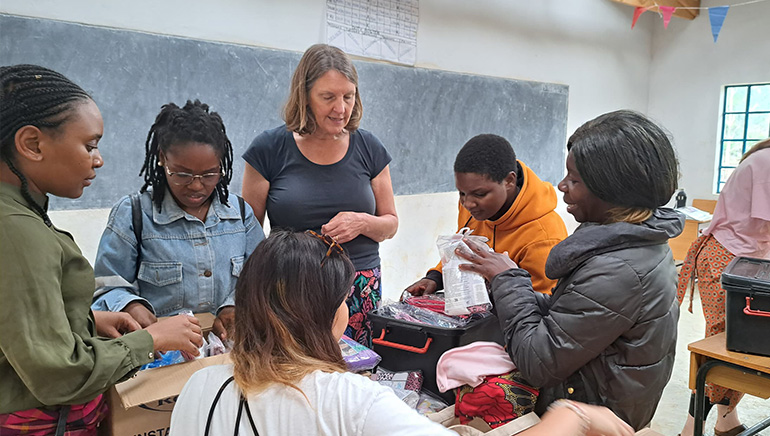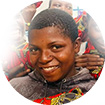In the heart of rural Malawi, thousands of girls face an invisible barrier to education—one that is rarely discussed but significantly impacts their ability to attend school, focus, and thrive. This barrier is period poverty—the lack of access to proper menstrual hygiene products and sanitation facilities. For many girls in Malawi, menstruation becomes a monthly reminder of their limitations, rather than an opportunity to grow and learn.
At LOFOM Foundation, we believe that education is a fundamental right, and no girl should have to miss school simply because of her period. Our mission is to break this cycle by providing sustainable solutions that address period poverty and, in turn, empower girls to pursue their education without fear, shame, or obstacles.
Understanding Period Poverty
Period poverty affects millions of girls and women worldwide, but in Malawi, it’s especially prevalent in rural areas where resources are scarce. Most girls cannot afford sanitary pads, leaving them to rely on unsafe alternatives like old fabrics, cloth, or even leaves. These substitutes are not only ineffective but also pose significant health risks, leading to infections and discomfort.
In Malawi, approximately 62% of adolescent girls do not complete primary school, and a staggering 96% do not make it to the final year of secondary school. A major factor behind these numbers is menstruation. Without access to proper hygiene products and private changing facilities, girls often miss school during their periods. Over time, these absences accumulate, leading to a loss of interest in education, lower academic performance, and eventually, dropping out.
“Many girls are taught to be ashamed of their periods, making it difficult for them to seek help or talk openly about their needs. ”
How LOFOM Foundation is Addressing the Issue
We at LOFOM Foundation are committed to turning the tide on period poverty through a multi-faceted approach that goes beyond just providing hygiene products. Our programs are designed to create long-term, sustainable change for girls in rural communities.
- Distribution of Reusable Sanitary Pads
- Menstrual Health Education
- Changing Room Construction Project
- Community Engagement and Advocacy


